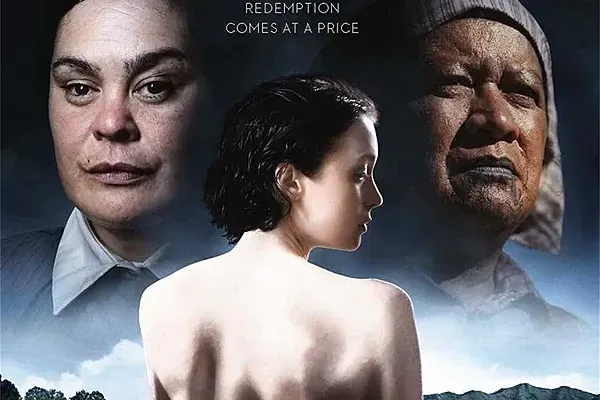Maori book awards
Written by

The book version of the movie White Lies: Tuakiri Huna that was submitted as New Zealand’s best foreign language entry for the 86th Academy Awards has been chosen as a winner in the fifth annual Maori book awards.
The book version of the movie White Lies: Tuakiri Huna that was submitted as New Zealand’s best foreign language entry for the 86th Academy Awards has been chosen as a winner in the fifth annual Maori book awards.
Written by Dana Rotberg and Witi Ihimaera, White Lies is one of five books on Maori topics including kapa haka and Maori Christianity announced as winners of Massey University’s Nga Kupu Ora Aotearoa Maori Book Awards.
Winning authors, publishers and distinguished guests will join University staff and students at an awards ceremony to be held at Te Wharewaka o Poneke function centre in Wellington on November 7.
The books were selected from those published between August 2012 and July this year. Five categories were identified, biography, fiction, non-fiction, te reo Maori and a special award. White Lies won the fiction category.
Chair of the three-member panel of judges and Massey senior lecturer Dr Spencer Lilley says the awards are held to address the dearth of Maori literature for adults. “The awards were created as a result of other major book awards consistently failing to acknowledge Maori authors. The awards also foster Maori literary excellence, authorship and scholarship in te reo Maori.” The awards are named Nga Kupu Ora, which translates as “the living words”.
Category winners:
Te Haurongo | Biography
Bradford Haami (2013), Ka Mau te Wehi: Taking Kapa Haka to the World. Published in Auckland, Ngapo and Pimia Wehi Whanau Trust.
Ka Mau te Wehi: Taking Kapa Haka to the World is described by the judges as an inspirational story, a love story like no other with a kapa haka twist. It is about the life of Ngapo (Bub) and Pimia (Nen) Wehi who formed the kapa haka groups Te Waka Huia, Te Manu Huia, Pounamu Huia and Te Ropu Awhina, as well as being part of the well-known Waihirere kapa haka group. The story is written in collaboration with the Wehi whanau and told through the eyes of Bub Wehi.
Te Pakimaero | Fiction
Dana Rotberg and Witi Ihimaera (2013), White Lies: Tuakiri Huna. Published in Auckland by Random House.
White Lies: Tuakiri Huna, which loosely translates as hidden identity, is based on an original story by Witi Ihimaera called Medicine Woman published in Ask the Posts of the House in 2007. It is not the first story by Mr Ihimaera to be rewritten. The judging panel said his willingness to re-engage and re-invent his stories makes him an inspirational author.
Te Korero Pono | Non-fiction
Henare Tate (2012), He Puna Iti i te Ao Marama: A Little Spring in the World of Light. Published in Auckland by Libro International.
He Puna Iti i te Ao Marama: A Little Spring in the World of Light is a compelling and passionate description of the role that Maori tikanga (protocols) and kaupapa (methodologies) play in the construction of a Maori Christian theological framework. Tapu, mana, pono, tika, and aroha are among the many concepts contextualised in the book.
Te Reo Maori | Maori language
Mamari Stephens and Mary Boyce (2013), He Papakupu Reo Ture: A Dictionary of Maori Legal Terms. Published in New Zealand by LexisNexis.
He Papakupu Reo Ture: A Dictionary of Maori Legal Terms signals change in the growth of te reo Maori both as an academic subject and in the legal domain. The bilingual dictionary is designed for Maori speakers who want to use Maori terms to write and speak in Maori about a legal topic. The book uses Maori sources from the last 181 years. There are 2114 entries and its contribution to professional Maori language usage is to be applauded.
Te Tohu o Kupu Ora | Special award
Te Onehou Phillis (2012), Maumahara: The Memories of Te Onehou Phillis. Published in Otaki by Kapohia Ltd.
Maumahara: The Memories of Te Onehou Phillis is an autobiography she wrote for her whanau so they would understand her upbringing. It takes the reader back in time to rural Maoridom in the early 20th Century. She was born on June 19, 1926, to Te Pareake a renowned weaver, and Eruera Riini Manuera – chief and recognised leader of Mataatua. In the book she talks about her family, childhood, education, marriage and her return home to work for her people of Ngati Awa. Maumahara is an invaluable representation of Maori social history.
Media Release: Massy University